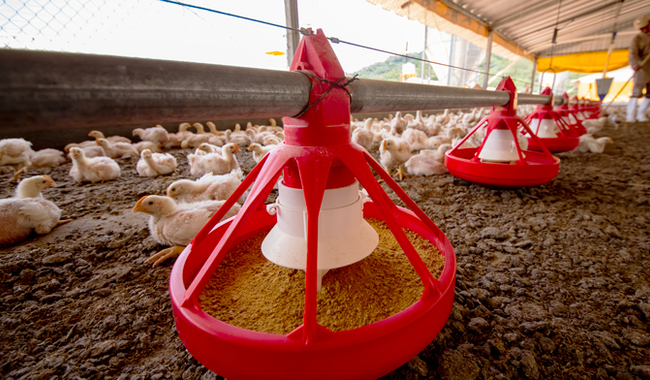The National Agro-Alimentary Health, Safety and Quality Service (SENASICA) reported the presence of the highly pathogenic avian influenza A(H5N1) virus in three chicken fattening farms located in the Asientos and Rincón de Romos municipalities in Aguascalientes.
Top control this outbreak, the SENASICA’s General Directorate of Animal Health (DGSA) then imposed a definitive quarantine on the three poultry production units (PPUs) involved, which housed about 826,800 birds, and will also put the state of Aguascalientes in an internal quarantine. Veterinarians of the SENASICA’s Mexico-United States Commission for Prevention of Foot-and-Mouth Disease and other Animal Exotic Diseases (CPA) started to implement the ordered sanitary measures, and will carry out the depopulation, cleaning, disinfection, sanitary vacation, and use of sentries in the three afflicted PPUs.
The appropriate epidemiological investigation, which entails taking samples at family and commercial farms located within 10 km around the afflicted PPUs, was also started. The active epidemiological surveillance for avian influenza carried out at the Federal Inspection Type (TIF) establishment regulated by the SENASICA and located in the San Francisco de los Romo municipality was responsible for the detection of the virus. The DGSA, through the CPA’s regional coordination office, has called an emergency meeting with the state authorities and the poultry producers in the region, to inform them about the activation of the mechanisms established by the Animal Health National Emergency Device (Dinesa), and published in the Federal Official Gazette this past January 3.
The DGSA reported that as the winter is about to end, the birds that migrated south are already flying back to Canada and the United States, which is causing HPAI A(H5N1) outbreaks in wild fowl across our country and the Americas. Consequently, the Secretariat of Agriculture and Rural Development reiterated their request to commercial and family poultry producers to strictly comply with all biosafety measures.
The agency also recommended enhancing biosafety measures at their production units, by making their personnel to shower before coming into the farm, change their regular clothes for working clothes, and repeat the procedure before coming out of the farm. Likewise, producers must prevent the entrance of any persons not involved with the PPU, and thoroughly review their facilities to prevent the entrance of any wild fowl thereto.
To help protect the production of chicken meat and eggs, the SENASICA called producers, veterinarians, and the general population to immediately report any suspected presence of the disease, through the 800 751 2100 phone number, and the Avise app on iOS and Android systems, or to report in person at any office of the Secretariat of Agriculture, the SENASICA, or the CPA’s regional coordination offices, located in all states in our country.
